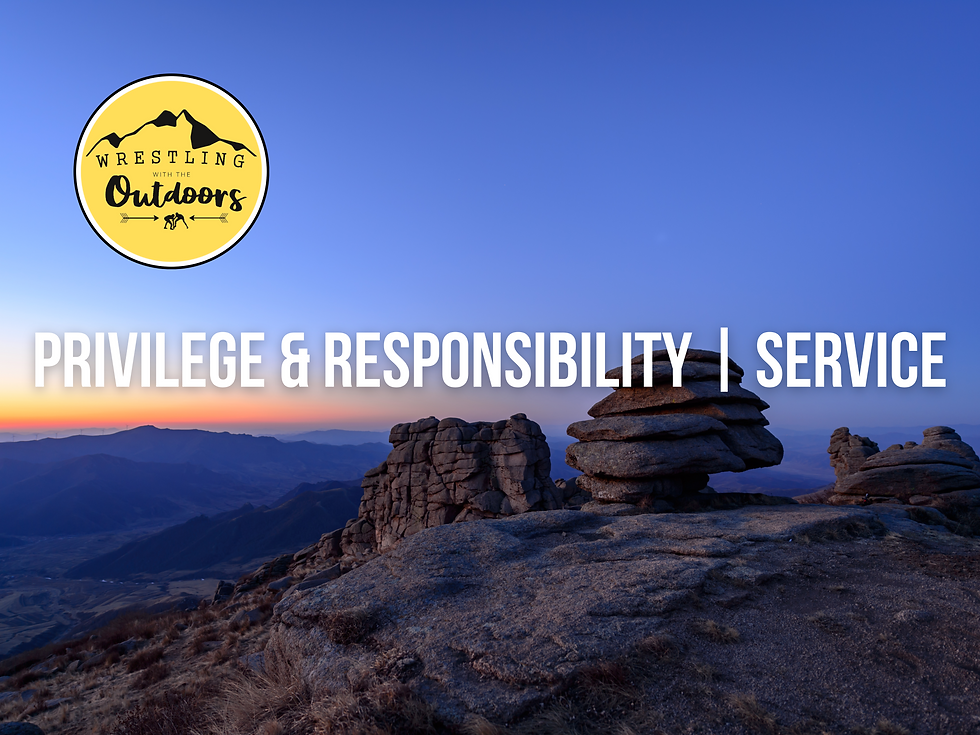Service, Gratitude, and Character
- WWTO Leadership Program

- Nov 20, 2024
- 2 min read
The Connection Between Service, Gratitude, and Character
Gratitude inspires service by reminding us of our blessings and motivating us to give back. When we practice gratitude we lead with positivity and purpose, encouraging others to do the same. Service strengthens and tests our character, making us better equipped to lead with integrity and authenticity.

5 Ways to Build a Mindset of Service
Cultivate Empathy and Awareness - A mindset of service begins with understanding the needs of others. Practice active listening and empathy to truly grasp what others are experiencing. Engage with diverse communities, read stories of resilience, or volunteer in settings where you can witness challenges firsthand. This exposure broadens your perspective and fosters a genuine desire to help.
Start Small and Be Consistent - Acts of service don't have to be grand gestures. Begin with small, intentional acts of kindness—help a neighbor, support a colleague, or donate to a cause you care about. Consistency is key; regular acts of service gradually integrate giving into your lifestyle, making it second nature.
Reflect on Gratitude - Make gratitude a daily habit by reflecting on the blessings in your life. This practice helps you appreciate your own resources and privileges, naturally encouraging you to share them with others. Gratitude shifts your focus outward, fostering a proactive attitude toward helping others.
Align Service with Your Passion - Identify causes or issues that resonate deeply with you. When service aligns with your interests or skills, it becomes more fulfilling and sustainable. Whether it’s mentoring, environmental work, or advocacy, find ways to serve in areas that ignite your enthusiasm and purpose.
Surround Yourself with Service-Oriented People - Join communities or groups dedicated to service, such as charities, faith organizations, or volunteer networks. Being surrounded by others who prioritize service reinforces your commitment and provides opportunities to learn, grow, and make an impact together. Shared goals create accountability and inspire long-term dedication.
By integrating these practices, a lifestyle of service becomes not just a choice but a natural expression of who you are.
Please join the conversation by responding in the comment section below.
How can service experiences outside the classroom enhance our leadership skills and prepare us for future careers?
In what ways does practicing gratitude change our perspective on challenges or setbacks in life?
Can you think of a time when serving others taught you something unexpected about yourself? How did it shape your growth?
Do you believe that acts of service should always align with personal passions, or is there value in stepping into unfamiliar causes? Why?
How do you think communities and organizations can foster a stronger culture of service among young leaders?




Comments